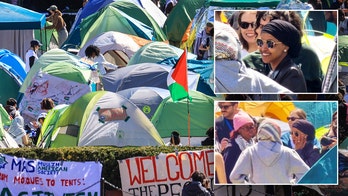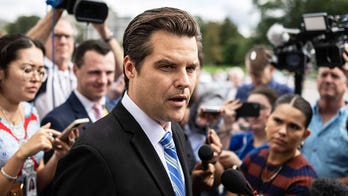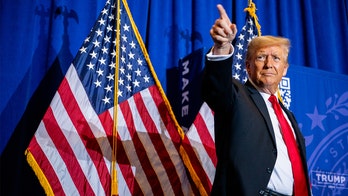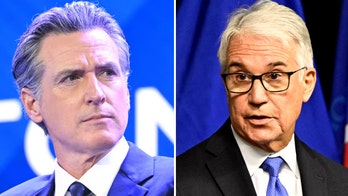The head of a congressional foreign relations committee says that Venezuelan President Hugo Chávez poses a threat to the security of the United States, and that U.S. leaders and the American public must take him more seriously.
In an interview Thursday, Rep. Ileana Ros-Lehtinen, the chairwoman of the House Foreign Affairs Committee, said the United States must “pay attention to Hugo Chávez and his evil ways.”
“The people of Venezuela should be concerned about their erosion of civil liberties, his control over the press, the way he’s manipulated electoral results,” Ros-Lehtinen said. “So many members of the opposition won slots (in elections), then he declared ‘I am the state, and the National Assembly is now irrelevant.’”
Chávez’s oppressive rule, as well as his growing influence in Latin America – where he has taken an active role in rallying opposition to the United States and helping leftist political candidates – could have a direct effect on the United States, Ros-Lehtinen said.
Efforts to get a response from officials at the Venezuelan Embassy in Washington were unsuccessful.
“It’s in our national security interest to have a stable hemisphere,” Ros-Lehtinen said, noting Chávez’s close ties to Iranian President Mahmoud Ahmadinejad.
“It’s in our interest to make sure countries do not forge ties with Iran,” she said. “They have direct flights to Tehran from Caracas. We don’t know who’s in those flights.”
Ros-Lehtinen said there’s no way to know if such flights carry terrorists, who then can obtain fraudulent documents in Venezuela with which to attempt to enter the United States.
Last year, Chávez and Ahmadinejad presided jointly over the signing of about a dozen agreements between the two countries pledging cooperation in a number of areas, including oil, natural gas, and trade.
Both presidents denounced U.S. "imperialism" in a joint appearance on the agreements, and said their opponents will not be able to impede cooperation between Iran and Venezuela.
Iran's state TV quoted both Ahmadinejad and Chávez as calling their relationship a "strategic alliance" that would eliminate the current global order.
Ros-Lehtinen said she supports targeted sanctions against Chávez’s government, as well as the governments of other leaders upon whom the United States wants to exert pressure.
Chávez’s “Achilles’ heel” is oil, she said. “We can do targeted sanctions that can hurt Hugo Chávez and not hurt the people of Venezuela. We can do such things as stop buying our oil from him. . .We can target a lot of the businesses of Hugo Chávez who want to come into the United States and do business here.”
The United States also needs to get tougher, she said, with other leaders in the Western Hemisphere who rule through oppression and are hostile to the United States. They include, she said, Nicaraguan leader Daniel Ortega, Bolivia’s Evo Morales, Ecuador’s Rafael Correa and Fidel and Raúl Castro in Cuba.
Ros-Lehtinen said that as for Cuba, “We’re hoping that moment of freedom, democracy and liberty will come sooner rather than later – I don’t think any of that is possible while the Castro brothers are around.”
She said that while people in Cuba may be “fearful of changes and what can happen,” she believes “the Cuban people are hungry for freedom, for democracy, for human rights, for the ability to elect their own leaders.”
Follow Elizabeth Llorente on Twitter: @LlorenteLatino
Elizabeth.Llorente@FoxNewsLatino.com
Follow us on twitter.com/foxnewslatino
Like us at facebook.com/foxnewslatino




